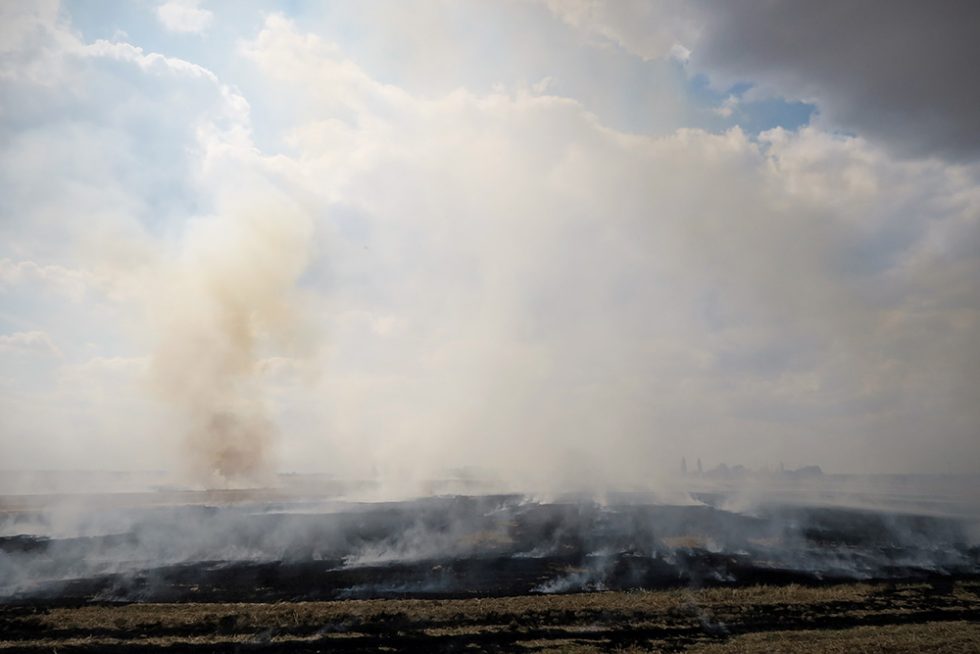-

I had this belief that burning fields after the harvest was an old-fashioned practice that was outlawed because of its obvious environmental impact. Indeed, in the UK ‘stubble burning’ as it’s called there, was all but outlawed by environmental legislation in 1993. However, here in France, no such legislation exists, and all around me now I’m seeing smoke rising from harvested fields.
As I stood by one burning field today, I found myself wondering why it is that the French haven’t banned these burns, so later I took to the internet to find out. What I found was a debate that has been going on for years.
I won’t bore you with the back and forth, and to be fair, I didn’t read enough to develop an informed opinion either way. In brief, it seems that there are those who feel that burning is the best way to clear a harvested field because it’s fast, cheap, and kills herbicide-resistant weeds, as well as slugs and other pests. Then there are those who feel that fires lead to a loss of nutrients in the soil, cause smoke pollution, and pose a significant risk of spreading out of control.
Reading about the debate over burning made me realize how absolutely disconnected I am with where my food comes from. Learning about the unintended consequences of pesticides and herbicides, over the impact of fire, made me realize that I am perhaps irresponsibly unaware of what is done in the world of modern farming. Part of me wants to learn more, but then I’ll confess that another part of me thinks that it’s probably easier to remain blissfully unaware and uninformed.
